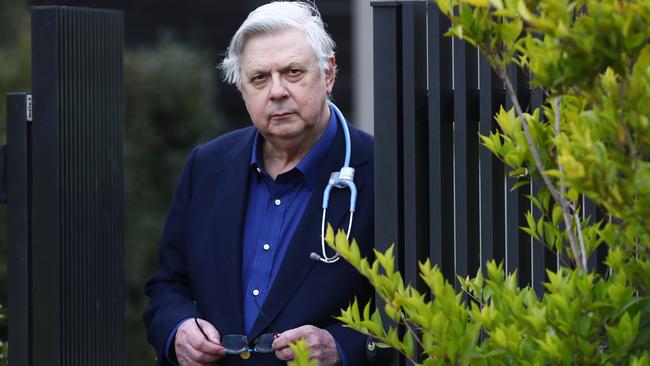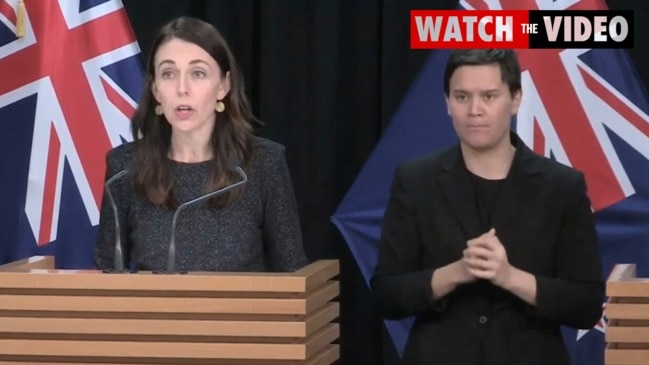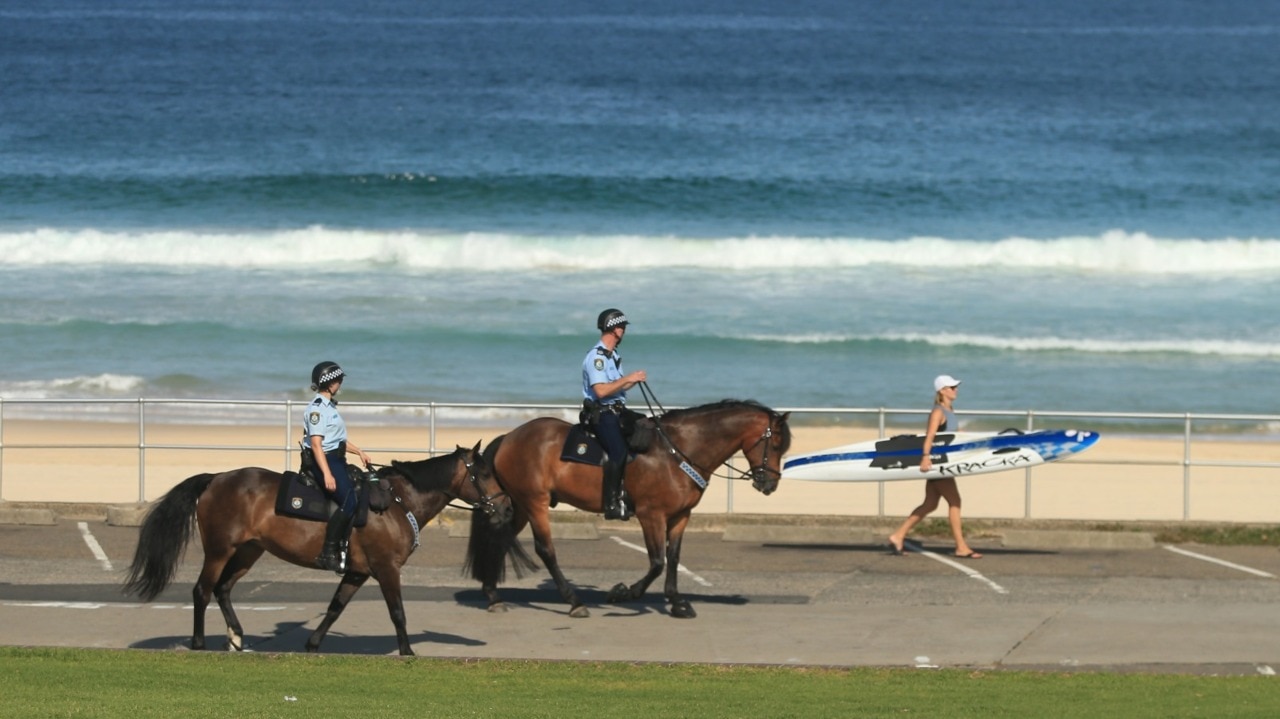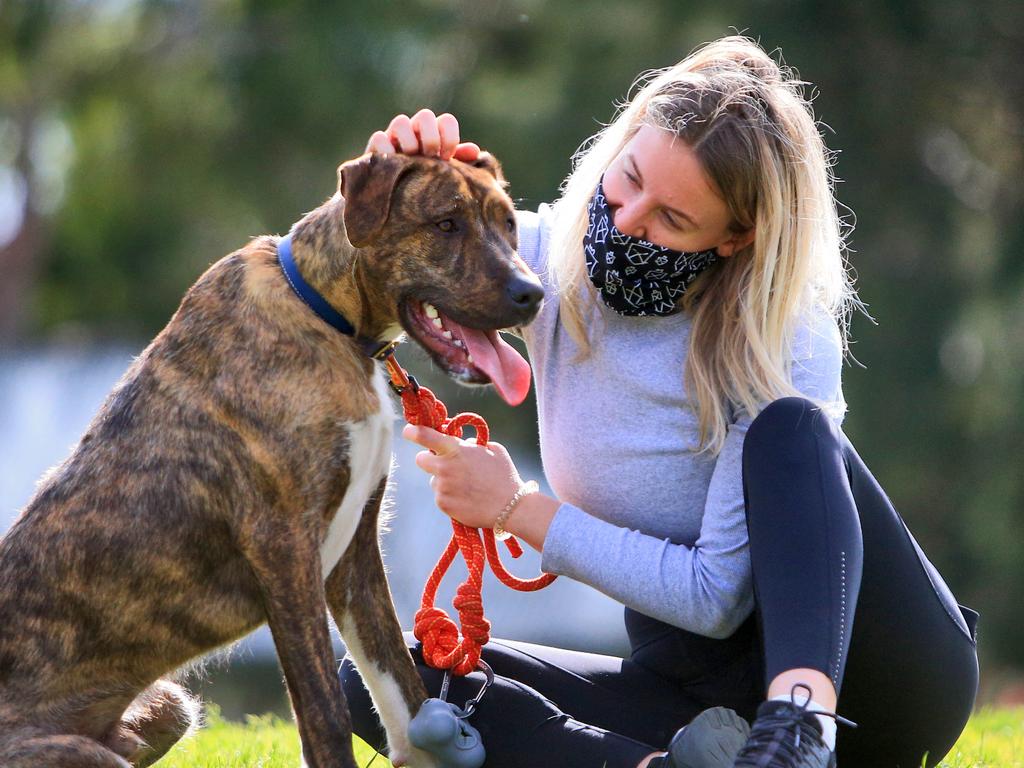Sick sedated residents trapped in aged-care homes
Covid positive residents are being refused hospital admission and staying sedated in nursing homes.

Elderly people in aged-care facilities infected with COVID-19 are being refused hospital admission and are instead being heavily sedated in understaffed and under-siege nursing homes.
The Australian can reveal Victoria’s Department of Health and Human Services has refused to hospitalise COVID-infected aged care residents.
Instead, residents with clinical needs who are at risk of “wandering” and infecting other residents and staff have been heavily sedated with medications including morphine, midazolam or the anti-psychotic, risperidone.
Medical experts say the practice of sedating elderly patients with COVID-19 is “inhumane” and risks exacerbating their respiratory condition and potentially even causing an earlier death.
The Australian has confirmed younger aged care home residents, in their 40s, have also been sedated instead of hospitalised or moved to another facility where they can be kept in isolation.
The federal Aged Care Response Centre, set up in July to address the surging number of COVID-19 infections in nursing homes, has demanded DHHS urgently stop turning infected elderly patients — including those with clinical needs such as dementia — away from hospital.
The DHHS had said that it did not have beds for “those type of people at this point in time”, sources said.
A senior federal government source said DHHS was turning away “frail, elderly COVID-positive patients”.
“They are reserving the beds for who knows what,” the source said. “You can’t imagine higher-priority patients. What’s happening is they are wanting to keep beds free in case — but in case of what? This is the ‘in case’.”
READ THE FULL RESPONSE FROM BUPA AGED CARE
Maryann Curry, the clinical services director at aged care giant Bupa, said: “Every hour counts when someone is unwell. Moving residents from aged care homes into hospital as soon as they return a positive COVID-19 test is better for their care and far more effective at limiting the spread of the infection to other residents and staff within the home.
“It is our view that keeping COVID-positive aged care residents within the home will almost certainly result in them suffering more than is necessary.
“Our residential aged care homes are exactly that: homes. They are not medical facilities nor acute hospitals with the equipment and workforce to deal with a pandemic, which cruelly targets the elderly and vulnerable.”
One aged care facility, Glenlyn Aged Care Facility in Glenroy, is dealing with a severe outbreak of COVID-19 at its 76-bed home, with at least 15 patients and five staff infected. That number is growing by the day.
Robert Hoffman, who treats several residents at the facility, said Royal Melbourne Hospital had originally organised to transfer coronavirus-positive patients at risk of “wandering” to hospital but cancelled the ambulances. Instead, the patients were sedated.
“Any COVID residents who were unwell were ordered as needed palliative care medications, morphine etc, one as young as 46,” Dr Hoffman said. “The COVID-positive but well residents who wander and cannot be easily isolated were heavily sedated.
“One of my patients with no symptoms but is positive for COVID and can’t be isolated was heavily sedated.”

Glenlyn Aged Care Facility contacted Dr Hoffman on Monday to ask him to prescribe medication to sedate another one of his patients, aged 46.
One Glenlyn resident, Jose Silvera, 80, was sedated using Risperidone by doctors from Royal Melbourne Hospital’s Residential In-Reach service late last week. Jose’s wife of 52 years, Raquel Silvera, 73, said she was told her husband had COVID-19 on Friday. But she said no one sought her permission to sedate her husband and she was worried it was done “to keep him quiet in the nursing home.”
She is extremely fearful for the care Jose will be receiving and is terrified he will not survive.
“I prefer to see my husband in hospital, my husband is 80 years-old, younger people than him have died,” she said.
“If he goes to hospital, maybe he will have a chance to survive. Why are they not taking him to the hospital? Why are they going to allow my husband to get worse and worse and worse?”
The Australian understands Royal Melbourne Hospital’s outreach doctor also prescribed end-of-life medication to an asymptomatic 47-year-old who had tested positive to COVID-19, sparking a heated argument with the owner of Glenlyn. The owner insisted on contacting the patient’s mother who is understood to have vehemently objected to giving her son morphine.
Glenlyn declined to comment on Monday.
THE FULL RESPONSE FROM ROYAL MELBOURNE HOSPITAL
Royal Melbourne Hospital did not respond to questions about this — nor how many COVID-19 patients across Victoria had been prescribed sedatives — but confirmed their use in residential aged care facilities.
“Helping to minimise the spread of COVID-19 in residential aged care facilities is part of the ongoing response the hospital has provided,” a spokeswoman said. “In some cases where residents are prone to agitation and delirium, medications can be used to ensure the safety of themselves, other residents and the staff. Care decisions are made on a case-by-case basis by the appropriate healthcare professional and take into account the clinical needs of the residents, and a facility’s capacity to provide the level of care required.”
Royal Melbourne said the Residential In-Reach program of highly skilled nurses and senior medical staff was used in aged-care facilities unless a patient’s condition deteriorated, at which point they were taken to hospital.
“This service provides care to patients in their residential aged care home where they are comfortable and surrounded by staff who are familiar to them; in cases where a resident’s condition deteriorates they are transported to the hospital for more acute medical care,” the spokeswoman said.
DHHS declined to comment.
There are concerns the use of sedatives on elderly patients could exacerbate the symptoms of COVID-19. Joseph Ibrahim, a practising physician and Monash University academic specialising in geriatric medicine, said the use of sedatives was “inhumane” and should be a last resort.
“It’s well-established that the use of antipsychotics and sedatives can compromise a person’s mobility and their ability to breathe and if the person has COVID, or any other respiratory illness, it’s likely to further compromise their recovery,” he said. “It potentially is a contributing factor to an earlier death.”
Professor Ibrahim said hospital transfer was an option that should be used to treat the patients before they were sedated with “dangerous” medications.

“People with dementia and COVID are likely to be very scared and very frightened and if we want to be humane we would look after them, reassure them and provide more support, we would not simply resort to sedating them,” he said.
Kathy Eager, director of the Australian Health Services Research Institute at Wollongong University, said it was poor practice to use sedation to manage behaviour and its use could be “really distressing” for patients.
“I think it’s a total misuse of sedation,” she said. “I do understand there are big challenges with COVID but people actually also have human rights and that needs to be based on their medical needs, not the social need to keep them quiet or physically isolated.
“If you cannot physically separate people who are going to be wandering with COVID and do not have enough staff to care for them, they should be moved out in order to protect themselves and to protect the other residents.”
At another facility with a COVID-19 outbreak, Grace of Mary in Epping, DHHS has told managers only elderly with acute cases would be hospitalised.
Dr Hoffman, who has patients at several homes, said the Victorian ambulance service had been “blocked” from attending the Grace of Mary nursing home.
“When faced with having virtually no staff to care for 50 residents, I understand the manager advised DHHS that he would have to transfer residents to hospital for their basic care,” he said.
Chemical restraint, or the use of sedatives, was heavily condemned by the Aged Care Royal Commission. Aged Care Clinical Advisory Committee documents from last year provided to the royal commission concluded that “there was clearly a problem with the overuse of antipsychotic medication and benzodiazepines in (residential aged care), noting that a small proportion (estimated at about 10 per cent) of the current use was clearly justified”.
At Glenlyn, Dr Hoffman said a COVID outbreak had meant there was a skeleton staff last weekend but the situation had worsened with virtually no one left to care for the residents. “There are no staff available for work. No one to cook, care, provide medication and to review these residents,” he said. “Victoria’s DHHS has been asked repeatedly for help. In the absence of help, patients should have been evacuated expeditiously. COVID cases in that facility will inevitably increase, which they are.”
Victorian Liberal MP Tim Smith, a critic of the DHHS handling of the COVID-19 pandemic, said the patients should have been moved to hospital. “These patients are some of the most vulnerable people in our society,” he said. “Why are they being refused access to the government’s hospital system, in the middle of this COVID-19 crisis, against the consulting doctor’s advice?”








To join the conversation, please log in. Don't have an account? Register
Join the conversation, you are commenting as Logout